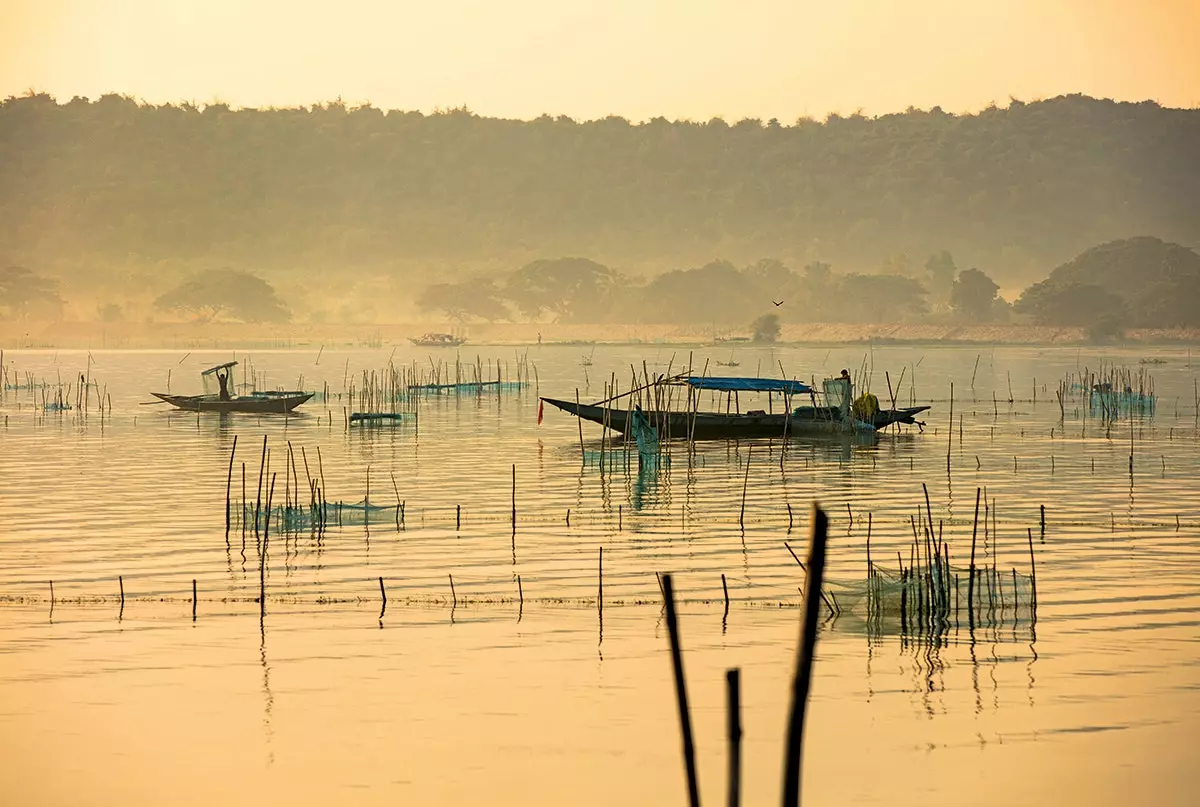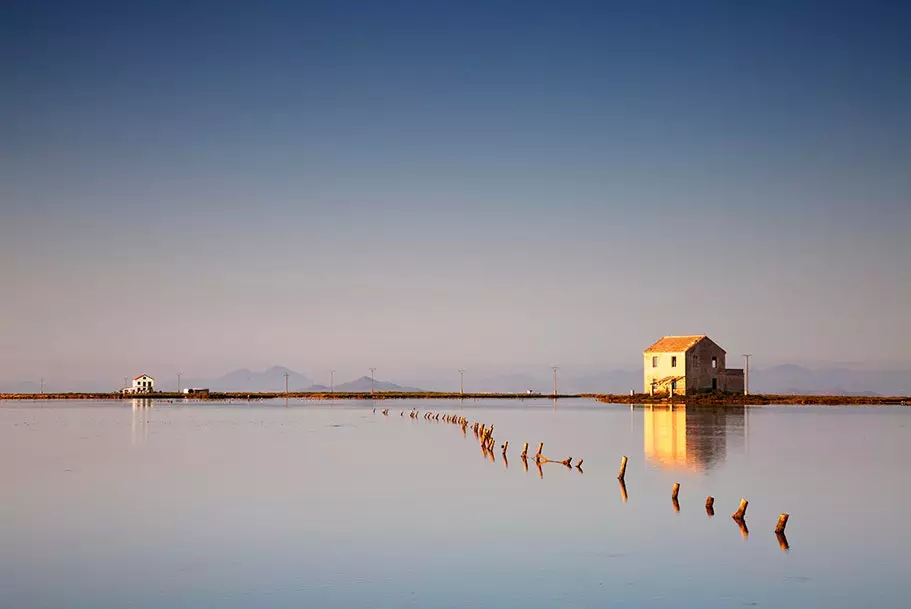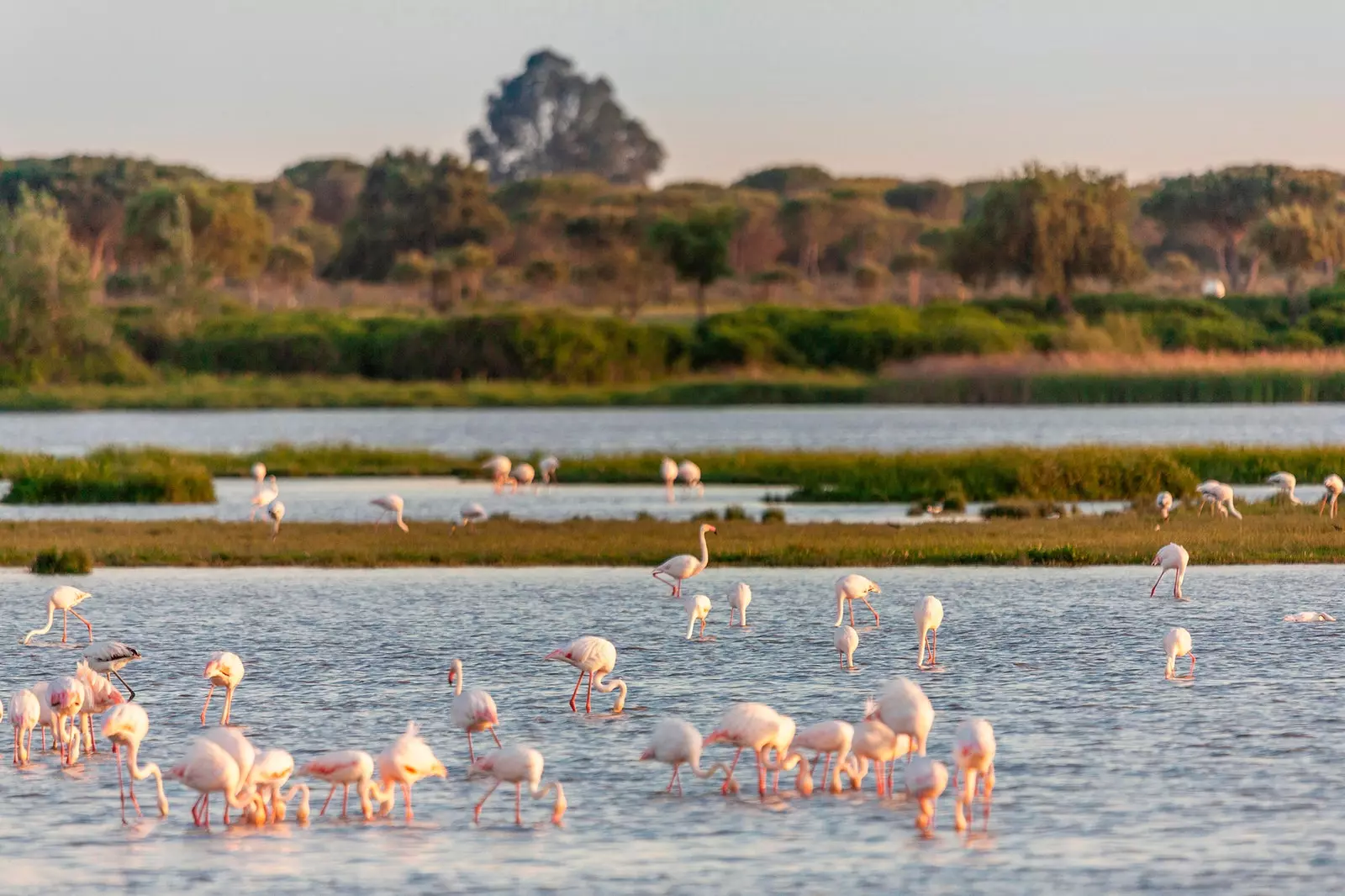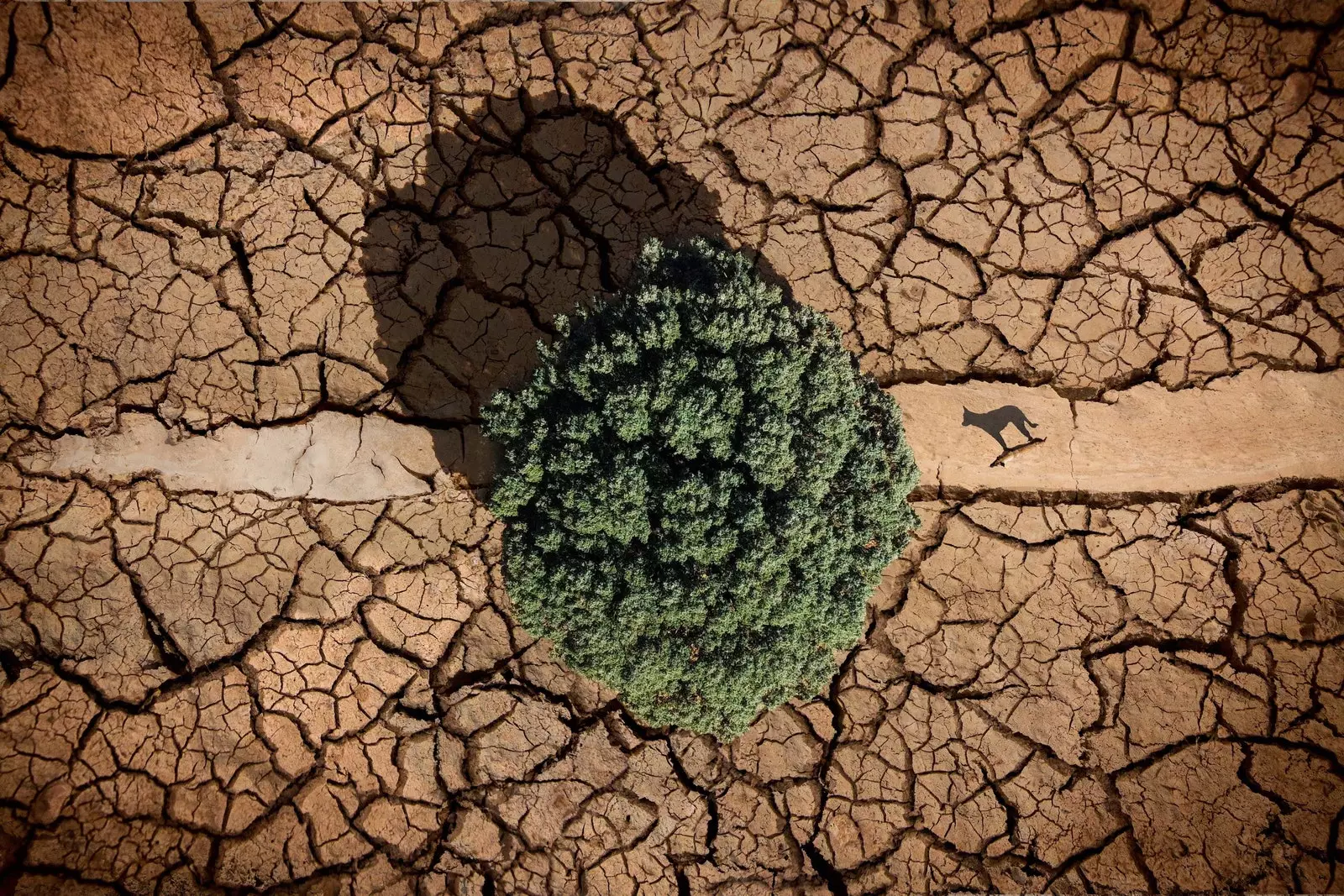we know too much the importance it has Water in our lives, how essential it is, even though the calendar does not tell us about World Water Day. But beyond how necessary it is for us to survive, its relevance dominates almost all areas of our existence.
The economy, nature, the production of Energy, of consumer goods... that is, almost everything depends to some extent on it. However, as pointed out Rafael Seiz, policy technician in the WWF water program, we are not taking care of it. And for this reason, today more than ever, which is your world day, it is necessary value it.
We are not taking care of it because we have not known how to adapt to it. Rather we have overexploited instead of managing it well. We believed that with technology and infrastructure as dams or canals would suffice. But once again, nature has shown us that we depend on it.

Boat crosses the golden water of Odisha.
"We have been very effective when it comes to using it and distributing it, but we have not been so much when it comes to make the right decisions how to make this use compatible with our socioeconomic development. Right now we are at a time where consumption of water resources at the planetary level it is above the Loading capacity to generate those resources. At least with the ease with which he did it for a few decades,” Rafael Seiz tells Condé Nast Traveler.
The problem is that we have relied on the reservoirs are always filled, but with the climate crisis that we are experiencing, we have verified that today there is greater uncertainty and that infrastructure is not enough to guarantee the water we use. Therefore, "we have entered a collapse spiral in which, if we do not change the way we relate to her, we will end up in a weakest situation facing the challenges of climate change", he explains.
WATER IN SPAIN, IN A VERY WORRYING SITUATION
According to Basin Hydrological Plans, which are the normative and planning element of water management, today we find ourselves in a very worrying situation. And proof of this is the data they provide on rivers, wetlands or estuaries, among which more than 40% they are in poor condition.

The Lesser Sea.
But they are not the only ones, since the aquifers are not better. “One in four is in poor quantitative condition. And almost 40% are with problems of contamination or overexploitation of its resources. This means that we are putting at risk many of our hydrological reserves, which we are not facing the problem”, maintains the expert.
Some environmental collapses that we are already seeing in some famous wetlands such as the Minor Sea, Donana or Daimiel Tables, that are a clear reflection of the inappropriate use that we are giving to water resources.
“The fact that they stay dry and that its structure is destroyed and its function prevents them from recovering their health by themselves. That is because of our actions. It is true that it rains less, It is something incontestable, but that does not translate directly into the reduction of water in our reservoirs, aquifers and rivers. What happens is that we are doing unsustainable use.

Doñana marshes.
THE SOLUTION? BETTER MANAGEMENT
Rather than waiting for solutions that come from heaven or trying tame nature through technology, what you have to do is adapt to it. According to Rafael Seiz, in Spain 80% of water demand engaged in agriculture, while 20% It is used to supply municipalities and industry.
Since WWF defend the need to change this relationship with water and ecosystems. Which means reducing the water destined for crops, but also from other sources and, above all, adapt it to availability. Because if we don't we will suffer droughts, like the ones we are experiencing right now in our country.
“We are seeing this in Spain now. We are immersed in a process of drought in which rainfall has been less than normal, but not much less, and our reservoirs in different parts of the country are far under of its normal capacity. Many at 20 and 30%. That means our supply systems they are in an anomalous situation”, explains the expert.

'The drought', Belinchón (Cuenca).
WORLD WATER DAY… ALSO TOMORROW. EVERYTHING COUNTS
Some low levels that have their direct cause in which the demand we demand is fixed, instead of adapting to it. But apart from this, there are other collective solutions that can be adopted. How to use technology to reduce distribution losses and thus improve its use, or use a more efficient in the agriculture.
At the citizen level we can also be more efficient with it. “Acts ranging from not wasting it to having best appliances or take into account the food we buy. If we acquire season products, local and ecological, we can achieve a very significant reduction in the resources that are involved in the production chain. Because it's not just the water used to irrigate, but there is more factors involved," he says.
What is clear is that if we continue like this, we will end up living a collapse of resources. As we are already seeing. It will mean some of us problems , but we will deprive future generations of a welfare state like the one we have. Cast that's not fair.
